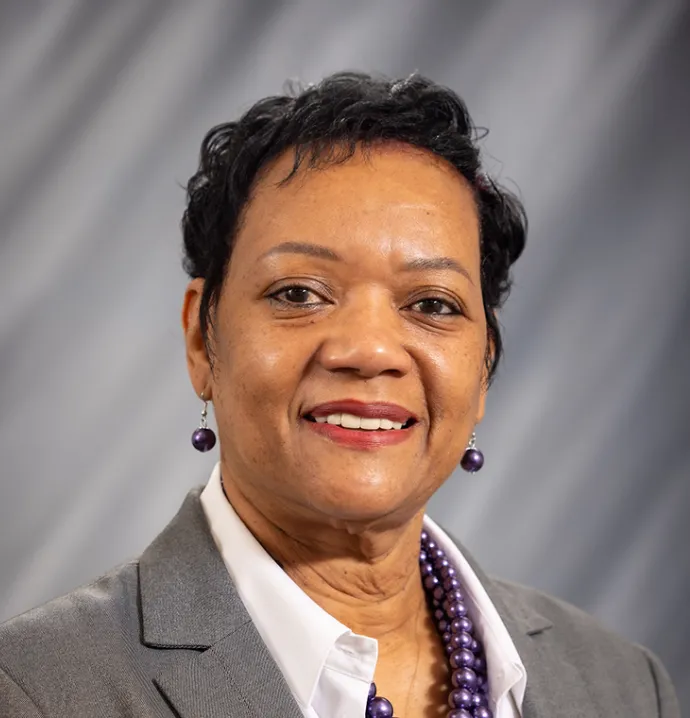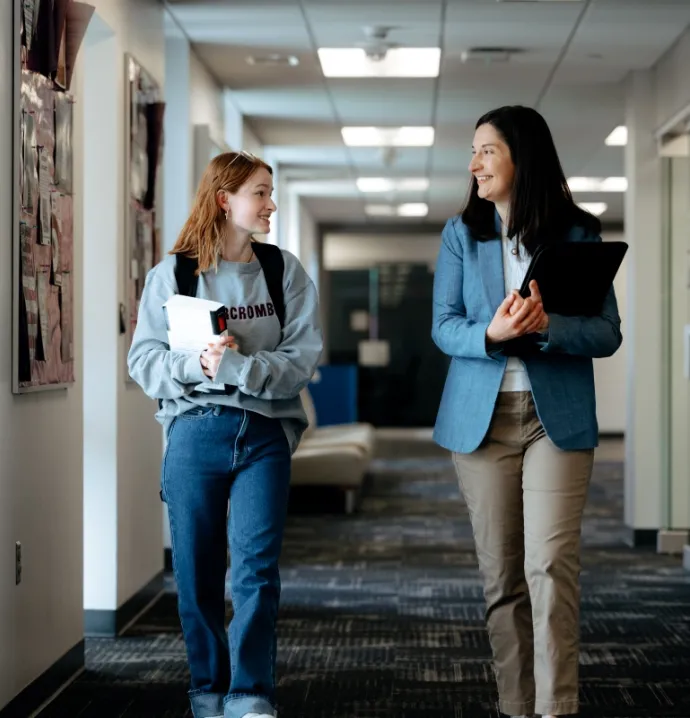Championship bound
Championship bound
The UNI women’s rugby club team has overcome COVID-19 pandemic restrictions, practice-field uncertainty and faster, downsized play to reach the Collegiate Rugby Championship games this weekend in New Orleans.
It’s the latest accolade for a club team that over the past 27 years has seen three alums play on the women’s rugby U.S. World Cup team and 15 on the women’s U.S. national team. The club won back-to-back national rugby championships in 2001 and 2002, made it to the Final 4 in 2013, the Elite 8 in 2012 and the Sweet 16 in 2010-2014 and 2019.
But the biggest reward, the players say, is the everlasting friendships they’ve made, the thrill of the sport’s physicality and how they’ve bonded to overcome unique hurdles — not only the pandemic, but finding green space while their new playing field is being prepared, and playing in COVID-downsized 14-minute games with seven players on each team rather than the regular 80-minute games with 15 on each side.
“We’re rolling with it,” said team President Kayla Dustin, a 22-year-old senior majoring in leisure, youth and human services with a minor in sports administration. The team raises money to buy uniforms and recently raised $5,000 through its Facebook page to cover out-of-pocket costs for the championship game weekend.
Dustin credited the UNI administration for working to keep the team safe while considering the students’ ideas to stay active in a close-contact sport.
“We lost our fall 2020 season,” said Dustin, a rugby forward from Prairie City, Iowa who played keeper and defensive line positions in high-school soccer. “We didn’t play in spring 2020. But everyone was working out and getting prepared. By fall, we did no-contact practices outside. And we got new recruits from the freshmen and underclassmen.”
The team’s strong bonds grew stronger — in its own bubble, so to speak.
“Once you join [the rugby club team], you instantly join a bunch of friends,” she said. “It’s an awesome way to stay active, and we’re always doing things together.”
The current Panthers team comprises women who’ve grown up as athletes, whether in soccer, basketball, softball, T-ball, volleyball or even high-school football — and they all say they love rugby’s physicality and camaraderie.
“It’s a perfect sport,” said Tatyana Reed, 21, a graphic design major who plays Flyhalf. “I use my soccer skills, experience playing on a field, and I can add the aggressive factor. I tackle a lot. That’s one of my favorite things to do.”
Reed, of Center Point, Iowa, played middle school basketball and volleyball and ran track, and played basketball and as a soccer goalie and mid-fielder in high school. In rugby, she found a new circle of friends.
Maggie Burns, 22, who plays outside center and is a senior biology-education major, said she leveraged the skills she learned as a high-school basketball point guard when she learned how to play rugby.
“Basketball was about hand-eye coordination and knowing how to cut through people and see gaps in the defense,” the Dubuque native said.
Burns said she also appreciates how the women on the team — none of whom knew rugby’s rules when they first joined — uplift each other, grow stronger together and respect each other’s different sizes, talents and contributions.
“Powerful girls need to play in the scrums and tiny girls need to slip through the defense and run quickly. Everyone is very accepting,” she said. “We feel more confident.”
The team is hopeful that women’s rugby’s growing popularity, especially at the high-school level, will boost the sports’ popularity, and that women’s push for equity in U.S. soccer and the #MeToo movement will help women who play professionally. Women’s college rugby programs total 408 nationwide, according to USA Rugby’s website.
Coach Meghan Flanigan (‘14), who volunteers to lead the sport she loves while she works as a freelance graphics designer in Cedar Falls, played four sports in high school, flourished on UNI’s rugby club team and played as a prop, a flanker and an inside center for an amateur pro rugby team in Minneapolis— the Twin Cities Amazons.
She returned to UNI in 2016 after UNI’s legendary coach, Steve Murra, who led the team to two national championships and served as president of the Iowa Rugby Union, died by suicide. Murra’s wife sent his brain to Boston University’s CTE Center, where it was determined that Steve Murra had suffered from Stage 2 Chronic Traumatic Encephalopathy (CTE), a degenerative brain disease.
Flanigan, 30, now leads the team’s effort to tell people about CTE and how to develop a safer head injury/concussion environment.
“We try to get local teams and other rugby players to register their brains for research to expand the knowledge and potential treatments for the disease,” she said.
Flanigan also shepherded the team’s efforts to make a difference in the world, acting locally while thinking globally.
Last summer and early fall, the team spent a few weeks helping communities — many where UNI alumni live — clean up after a devastating wind-and-thunderstorm system — called a derecho — hit Iowa.
The team has participated in Black Lives Matter marches, helped with Special Olympics and Habitat for Humanity, and wears “Equality” T-shirts while warming up for every game to support the “Rugby For All” campaign opposing World Rugby's ban on transgender women. After George Floyd’s murder by a white police officer in Minneapolis, the team created and sold “Equality” t-shirts and donated the profits to Chuck Pearson, who, through his company, Pearson Consulting, is spearheading the Iowa African American Heritage Trail program.
Flanigan, who serves as president of the Iowa Rugby Union, said she “loves watching my athletes grow into confident, empowered people, seeing them succeed off the field, and get along with each other and succeed in other parts of their lives.”
“I love that they own who they are and can be unapologetically strong,” Flanigan said. “Giving back to the game that gave me so much puts a smile on my face.”




